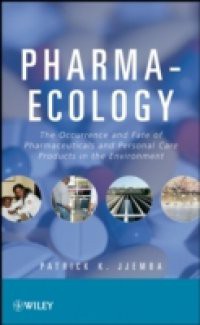Pharmaceuticals and personal care products we can't live without them. Can the environment survive with them? Pharmaceutical and personal care products (PPCPs) are increasingly being recognized as micropollutants. In this context, pharmaceutical products encompass a diverse range of drugs used to treat various illnesses, and personal care products include everyday items such as soaps, fragrances, cleaning agents, disinfectants, and similar products. Written for professionals from different backgrounds, Pharma-Ecology bridges the knowledge and language gap and critically examines the issue of PPCP micropollutants and how to best minimize their impact on the environment. Organized systematically, it: Presents a range of pharmaceutical compounds categorized by mode of action and common usage, displaying the volumes (or number of prescriptions) that are dispersed Discusses the detection of PPCPs in the environment using instrumentation and bioassay techniques, including microarrays Covers the occurrences of PPCPs in aquatic systems, sediments, soil, and aerial environments Considers the persistence and degradation of PPCPs in the environment, and links pharmacokinetics/pharmacodynamics with the kinetics of PPCPs in the environment Explores engineering and treatment techniques that could minimize the impact of PPCPs in the environment Includes numerous tables and figures that illustrate information This is an enlightening reference for engineers, toxicologists, ecologists, micro-biologists, and chemists involved in pollution and environmental analysis; policy-makers; professionals in federal and state regulatory agencies; and pharmaceutical professionals. It is also an excellent text for undergraduate and graduate students in related fields.

